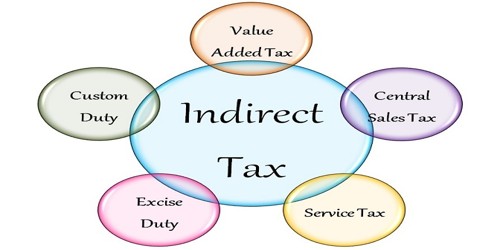Indirect Tax
An indirect tax is a tax imposed on one person but partly or wholly paid by another. It is a type of tax where the incidence and impact of taxation do not fall on the same entity. These taxes are typically added to the prices of goods or services. The most common example of indirect tax is the excise tax on cigarettes and alcohol. If the government imposes an indirect tax on a good, the effect on the final price depends on the elasticity of demand.
In indirect tax, the person paying and bearing tax is different. It is a tax levied on goods and services rather than on income or profits. It is usually imposed on a manufacturer or supplier who then passes on the tax to the consumer. It is the tax on consumption or expenditures. Generally, these taxes are commonly “hidden” in the price that consumers are paying for that good or service.
Examples of indirect taxes are – VAT, Entertainment Tax, Excise Duty, Sales Tax, Hotel Tax, Import And Export Duty, Central excise, Service tax, etc. are examples of indirect tax.
Types of Indirect Taxes –
Sales tax: Whenever people go to the malls or department stores to shop, they are already about to pay indirect taxes. Goods such as household items, clothing, and other basic commodities are subject to such types of taxes.
Excise tax: When a manufacturer buys the raw materials for the company’s products, says tobacco for cigarette companies, he already needs to pay indirect taxes on the items.
Customs tax: When a container filled with bananas from another country enters the US, the importer pays indirect tax (customs tax), which he then passes on to the consumers.
Information Source:
















